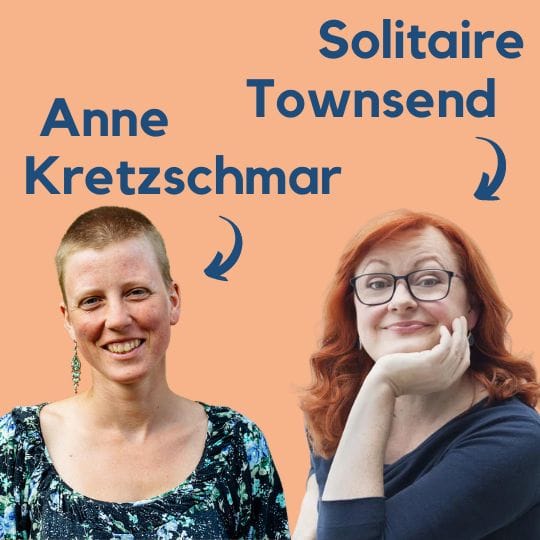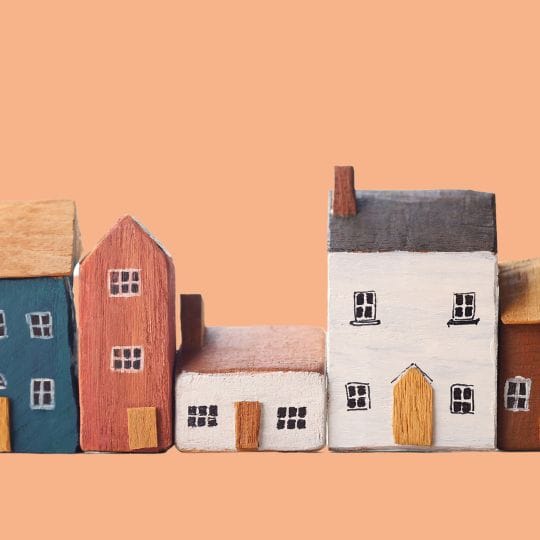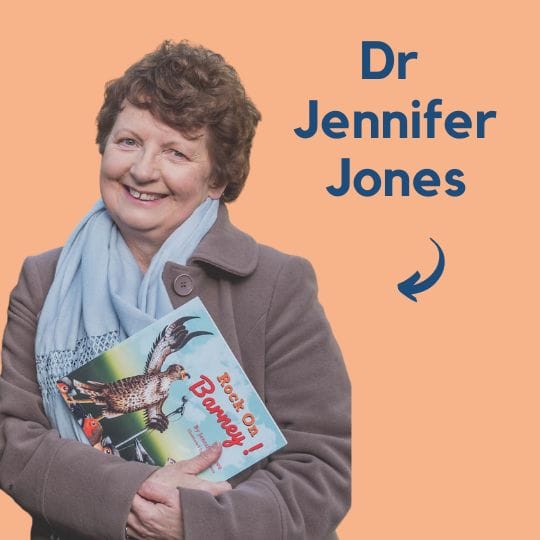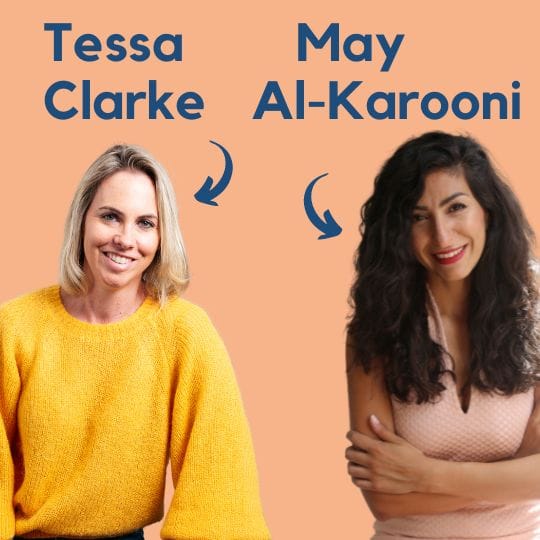This is episode six of our 2022 podcast series. Listen to the episode here and find other episodes and previous series here.
In this episode we are speaking to Olympians Etienne Stott and Laura Baldwin about the impact of sport on the climate.
We’ll be asking if and how we can reduce the carbon cost of sport while still keeping the benefits to our physical and mental health.
Flight Free Fact
- By 2050, almost one in four English football league grounds can expect flooding every year
- Of the 19 venues that have already hosted the Winter Olympics, just 10 will be able to hold them by 2050
- Cricket venues in Australia, India and the West Indies will see a 60% increase in days with temperatures over 40ºC over the next decade.
Flight Free UK
Welcome Etienne and Laura. Can you give a quick outline of your careers as athletes?
Etienne
I started canoeing when I was about 10 or 11, but I wasn't from a sporty family or anything. I then joined a local club and took a fairly large leap of imagination and decided to try to become an Olympic and world champion.
It took me around 20 years to get to the London games. Tim, my crew mate, and I won gold at the London games, our home Olympics. You can't get luckier than that!
Laura
Between college and university I went on a two-week sailing holiday and learned the basics of sailing racing. During that time I improved so much that the instructor told me I could be a world champion!
So I decided to take a gap year to focus on learning all the skills. I'd set myself the goal of London 2012 or maybe Beijing 2008, but I actually qualified in just three years. It just shows what you can achieve if you fully apply yourself.
Flight Free UK
Since leaving full time sport, you’ve both become involved with Extinction Rebellion. Could you tell us a bit about that and your motivations?
Laura
After Athens 2004 I went out to Australia and lived there for a decade. Living in Australia, you really get to see climate change in action.
In 2019 I went to the World Economic Forum in Davos with my first training partner. She had to read these papers before attending the forum and as she had jet lag and a headache I read them to her. After she fell asleep I kept reading and it was like reading a script for a horror movie. I thought, why didn’t I know about this?
After coming home I spent all my free time watching, reading and studying everything I could about the crisis and also the solutions. I started with making all the eco swaps myself, then I looked at what I could do to help my community. But the more I learned, the more I realised it has to be the government that forces the changes.
So I went along to an introductory talk from Extinction Rebellion in my local area. My first action was in Bristol, which I found really empowering, inspiring, and uplifting.
Etienne
I was always quite motivated throughout my career of having a legacy to put all of what I'd learned back into the communities and back into helping people.
Even before my career finished, I had started using my bike to ride to training and also became vegan as well.
In 2018 I went to a vegan festival called the Vegan Campout which first exposed me to activism. A few weeks later, Extinction Rebellion did their first action, the Declaration of Rebellion in London. I watched it on the internet and thought, this is something I could do.
Going down this path makes more sense to me than coaching people or doing motivational talks to school kids, because the future that we're heading towards isn't going to be like that. I feel this is a way to be authentic and try to do something about it.
Flight Free UK
Each week there are school teams travelling, local teams travelling and professional teams travelling for sports fixtures. What do you think at a domestic level we could do to encourage more sustainable travel choices?
Laura
With so much needing to change, and people having to give things up in order to cut our emissions, there's going to be a void created. Sports and the arts could be the thing to fill that void: like a medicine that helps us transition from a world of luxury that we don't even appreciate.
Sport has such power. It's healthy, it's connecting and it's fulfilling. We need to focus on grassroots, on communities, on creating sporting opportunities for everyone. There needs to be a massive boost in local sports.
All the sporting federations need to plan their calendars so there are very few competitions that you travel to. Going to the national championships might be the one event that pulls everyone together each year. But travelling every weekend to a different part of the UK or even Europe or the world is just barmy. Through my role with the World Olympians, I'd really like to see a movement across the world that promotes local sports as the priority.
Etienne
With re-imagination, we can get back to what sports is really about. Sport is about challenge, endeavour and cooperation. Focussing on local sports will be more fun, more creative, and will still give all the physical, mental health and social benefits.
Flight Free UK
What do you see as the future of international sport and how can its climate impact be mitigated?
Etienne
There's been talk about holding the Olympics at the same venue every four years, to reduce the considerable carbon impact of constructing the venues etc. It probably would not be as lucrative, but there are lots of ways that we could have an awesome Olympics that people came to from across the world.
Of course, there would still be a very significant carbon impact from that because of all the travel, but it would also have an incredible, inspirational feel-good aspect.
Flight Free UK
How important is it for professional athletes to use their platforms to raise awareness of things like climate change?
Laura
It used to be scientists and philosophers that were the trusted voice – now it’s celebrities and sports people.
This is something that Etienne and I have been engaging within, through Champions for Earth. We help athletes to find a way in which they feel confident to put themselves forward as ambassadors for the environment.
Etienne
Athletes have extraordinary reach because people invest in them, and that means that they can reach people.
One of my aims when I became active with Extinction Rebellion and Champions for Earth was to try to be visible, and to pave the way and embolden others who are also in the spotlight.
Flight Free UK
You both just mentioned Champions for Earth, which is a movement created by you, Etienne, and Dave Hampton, who we know well here at Flight Free UK. Have you had much progress with this Laura?
Laura
We've been helping athletes speak out about the climate, but the main blocker for most of them is the fear of being attacked for hypocrisy.
So we are helping to create a solid defence statement. We're all hypocrites within the system, so we really need system change, but we should also focus on the changes that people are already making.
Athletes give people joy through their sport, and it’s important for them to be able to continue that without being paralysed by this call of hypocrisy. It really is just a distraction technique to try to discredit them, so that people aren’t listening to the important messages we’re trying to talk about.
Flight Free UK
What do you think needs to happen to improve the carbon footprint of sport?
Laura
The first thing I would say is education. The inconvenient truth is that we've been told by the world's leading scientists that there is this carbon budget to keep the world under 1.5 degrees of global overheating.
It sounds like a tiny amount, but we're at 1.2 degrees of global overheating now, and you can already see the catastrophic climate impacts hitting every continent of the globe.
Then when you're told that the remaining budget at the current rate of emissions will be spent within the next eight years, you start to realise the immediacy and the urgency of the situation.
People need to know the truth. Then we need to start bringing people together to work out how we reduce our carbon footprint. If you educate people on the problem and include them in deliberating the changes we should make, I think that will make for a much more peaceful transition.
Etienne
The chief of the United Nations, Antonio Gutierrez, and other hugely credible people are saying this is code red for humanity. We have to change or everything will be changed.
Once you start to see that, we have to ask how can we apply that to our profession’s ideals of fairness and of kindness and of care for young people? Sports is all about young people. Of course, it's for all ages but what do we want for these youngsters?
We need to come together and figure this out as sensible, responsible people, rather than just bury our heads in the sand and carry on playing our sports. We can only do that for so long before it becomes painfully clear that that's not going to work.
Flight Free UK
Thanks for speaking with us Etienne and Laura, and we hope that your work with Extinction Rebellion and Champions for Earth really does make people wake up and pay attention to this vital issue, so we can continue to have those amazing benefits from sport without so many of the climate impacts.
Destination of the month
This month we’ve chosen one of the most famous sporting events in the calendar, and that’s the Tour de France.
There are two destinations that are particularly good to soak up the atmosphere of the Tour, and those are the Alpe d’Huez and the Champs-Élysées in Paris (the finish line). Paris is easy to reach without flying: you can either travel by Eurostar from London, or by coach or by ferry from the many ports on the south coast.
The Alpe d’Huez is a little more complicated: you would first get the Eurostar to Lille, then TGV high speed train to Lyon, then a TER regional train to Grenoble, and a bus from there. But it's almost as quick, and much more enjoyable, than flying.
Thanks for listening. Goodbye!
Listen to the full episode here and find other episodes and previous series here.
Credits:
Interview written and produced by Evie Vouillemin. Voiceover: Louise Millington and Anna Hughes. Intro music: The Executive Lounge By Dan Barton. Outro music: Pines and Violet by Sky Toes.




